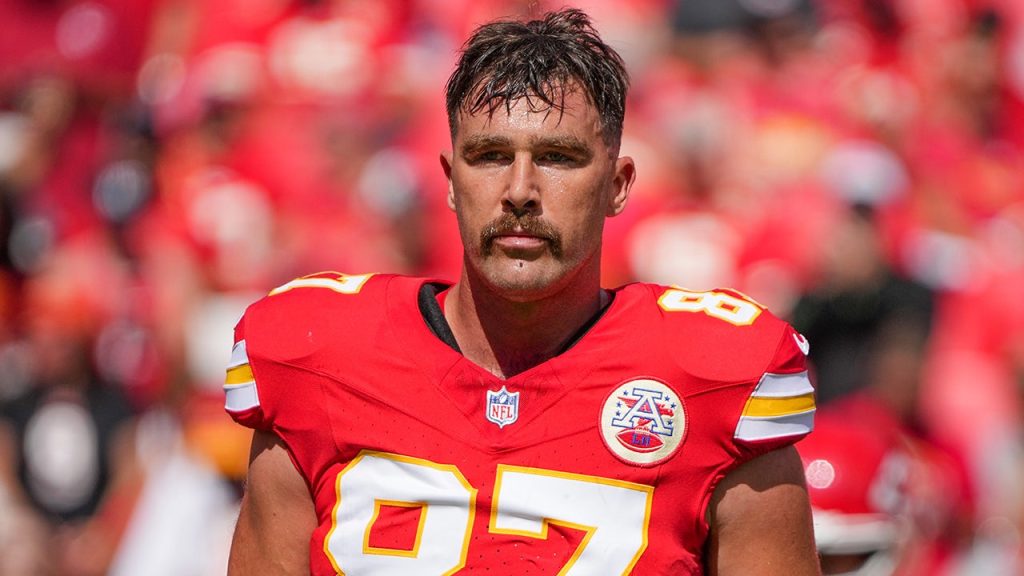Former ESPN NFL Draft analyst Todd McShay recently criticized Kansas City Chiefs tight end Travis Kelce for his slow start to the season. McShay suggested that Kelce’s off-field activities, such as partying and traveling with celebrities, may be affecting his performance on the field. He also pointed out that Kelce’s body type seems different and that he lacks the same explosiveness and shape as before. McShay questioned why analysts and commentators are not discussing Kelce’s decline in performance more openly and whether there are restrictions on criticizing players.
During a podcast appearance, McShay compared Kelce’s performance in the 2022 preseason to his performance in the 2024 preseason, highlighting a perceived decline in the tight end’s abilities. He observed Kelce looking downcast while watching film on a tablet from the bench and suggested that this demeanor indicated a lack of focus or dedication. McShay acknowledged that Kelce may eventually work himself back into shape but expressed concern about his current level of play. He questioned whether there was a tacit agreement within the league to avoid discussing Kelce’s struggles openly.
Kelce, who is nearing his 35th birthday, has faced challenges in recent seasons, including injuries and a decrease in targets. Despite these obstacles, he managed to surpass 1,000 receiving yards in the previous season. With age and wear and tear on his body, Kelce’s performance may be impacted as he adjusts to the physical demands of the game. McShay’s comments have sparked a debate about how analysts and commentators should discuss players’ performances and whether there should be more transparency in evaluating athletes’ abilities and readiness.
Patrick Mahomes, the Chiefs’ quarterback, defended Kelce by suggesting that opposing defenses were prepared for him, causing difficulties on the field. However, McShay’s comments raise questions about the toll of off-field distractions on players’ game performance and whether there is a reluctance to criticize star athletes openly. The discussion surrounding Kelce’s performance sheds light on broader issues within the sports industry, including the pressure on players to maintain peak physical condition and how external factors may impact their on-field success.
As Kelce navigates the challenges of aging in a physically demanding sport, fans and analysts are watching closely to see how he adapts and rebounds from his slow start to the season. McShay’s assessment of Kelce’s performance has ignited a conversation about the accountability of athletes, the role of analysts in discussing player performance, and the balance between respecting privacy and offering honest evaluations. Kelce’s journey back to top form will continue to be a point of interest and scrutiny as the season progresses, offering insights into the complexities of professional sports and the demands placed on elite athletes.


